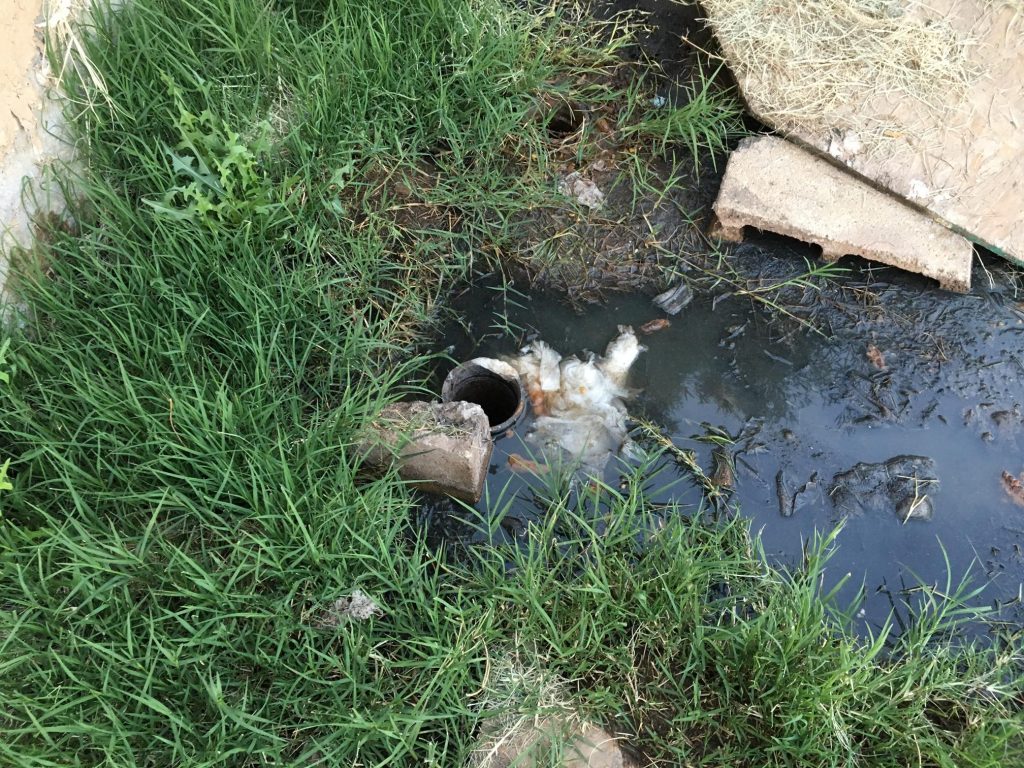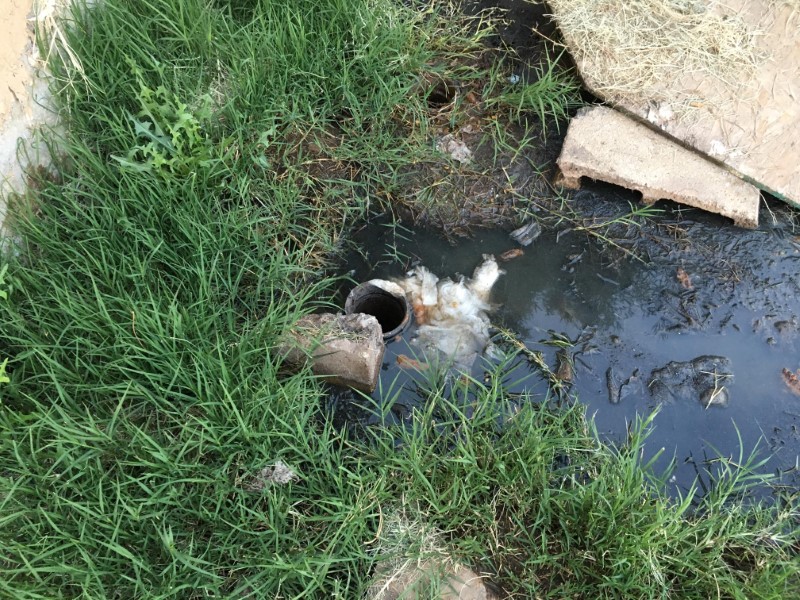
- Grease—this is considered as a non-biodegradable substance since it cannot be degraded by the resident bacteria.
- Plastics and nylons—these cannot be decomposed by anaerobic bacteria. They just stay in the cesspit and block the perforations surrounding the cesspit. Biodegradable plastics bring about methane that is toxic when inhaled in high levels. It is odorless, tasteless, colorless, and flammable. Experts make plastics biodegradable by adding chemicals to plastic but until now, not all of plastic substances are decomposed by anaerobic bacteria.
- Sediments/debris—these come from the surface, driven into the cesspool by means of heavy rains and floods. They could also enter the cesspool system through damaged parts.
Calcium, specifically calcium sulfoaluminate or ettringite, blocks a cesspool system. These white formations are formed by sulfuric acid. The root cause is the hydrogen sulfide that the thiobacillus bacteria produce. Thiobacillus bacteria are the resident bacteria in the cesspit. They engage in anaerobic digestion, which produces the hydrogen sulfide gas. The hydrogen sulfide gas then rises above the water line and combines with oxygen. When this combination occurs, sulfuric acid forms the concrete reinforcement for the metal elements of the cesspit are corroded. The ettringite are white substances that form on the concrete part of the cesspool. They are signs of deterioration. Ettringite blocks the cesspool and then eventually destroys it. When the cement reinforcement is destroyed, the metal elements corrode. This results to leakages and the entry of substances that block the cesspool system.
Sadly, there is no possible way to correct the damage brought upon by sulfuric acid. It really weakens the composition of the cesspool, making it vulnerable to malfunctions and failure. You should know how calcium can block a cesspool so that you could screen the properties you want to buy. A reputable septic inspector should come and perform the inspection to determine the real condition of the cesspool. The sulfuric acid weakens the cesspool. It would be very fortunate for you as a homeowner if you end up with a cesspool in optimal condition. This would mean that you won’t have any problems with your wastewater treatment sometime in the near future. If your cesspool proves to be a affected by sulfuric acid, you would have to prepare a budget for repairs and replacements.
Preventing the blockage of your cesspool by ettringite is an ideal move. It would be best to talk to your septic expert about the cement brand of your cesspool. There are cements that tolerate the production of sulfuric acid while others readily deteriorate with its presence. If you are lucky enough to be the one to install your own cesspool system, you would then have the decision as to what brand of cement your cesspool should have. This would prevent the deterioration of your cesspool and your budget.
Another way to prevent the ettringite formation in your cesspool is by making your cesspool an aerobic system. Installing a reliable aeration system will add more oxygen into your cesspool. This will overpower the anaerobic digestion that happens in your cesspool. More aerobic bacteria will be present and this will prevent the production of hydrogen sulfide. Knowing how calcium can block a cesspool is useful for both beginner and experienced homeowners. You should make sure that your investment lasts for a very long time. If thiobacillus bacteria will eventually take down your cesspool, then you should do all that you can to keep it from worsening the situation.
